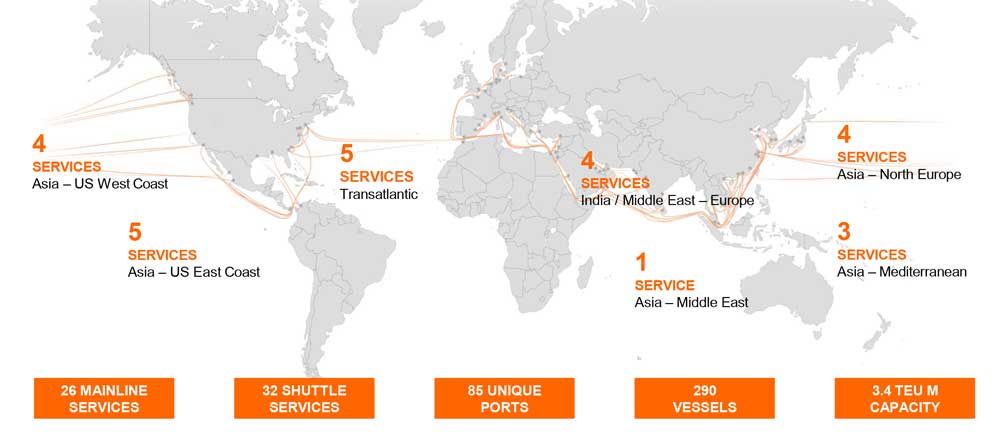The planned alliance between Maersk and Hapag-Lloyd still raises questions at the US regulatory authority FMC. Approval has been delayed.
Maersk and Hapag-Lloyd want to launch their new alliance in February next year. To do so, they need the OK from the authorities in important trade lanes, including the USA. [ds_preview]
However, the powerful FMC (Federal Maritime Commission) has now asked the two shipping companies to provide more information about the planned Gemini Cooperation. This concerns issues which, in the view of the competition authorities, have not yet been clarified or not sufficiently clarified. Therefore, a complete analysis of the potential effects of the Gemini cooperation on competition is not possible.
However, a refusal of approval is considered unlikely. Rather, this is the usual procedure when establishing alliances in the shipping industry. The previous alliances “2M”, “Ocean Alliance” and “THE Alliance” also had to go through such a procedure. However, a planned three-way alliance between MSC, Maersk and CMA CGM was prohibited years ago.
FMC postpones approval
On the other hand, the agreement between Maersk and Hapag-Lloyd was scheduled to officially come into force today – so there is now at least the threat of a delay.
The two-liner shipping companies are planning a hub-and-spoke concept. The 26 intercontinental container services will only call at a selected number of twelve major ports (hubs) worldwide, including Bremerhaven and Wilhelmshaven in Germany. From there, other ports, such as Hamburg, are to be served by 32 regional shuttle services with smaller ships.
The two alliance partners hope that this principle, which has long been common practice in aviation, will result in greater reliability and efficiency and, therefore, lower costs.
To initiate the new agreement, Hapag-Lloyd will leave “THE Alliance” with ONE, HMM and Yang Ming at the end of January 2025, when Maersk’s “2M” alliance with MSC will also end. The new alliance comprises a fleet pool of around 290 ships with a combined capacity of 3.4 million TEU. Maersk will provide 60% and Hapag-Lloyd 40% of the ships.














